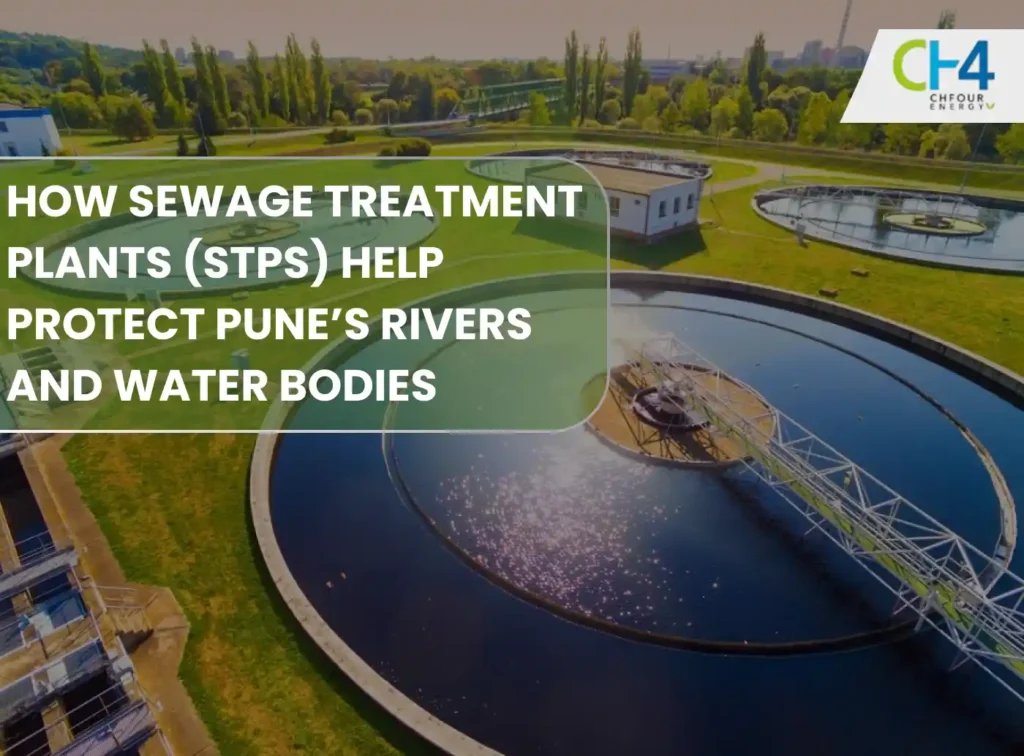Pune, a quintessential town until the early 2000s, experienced a surge in population later. The sudden and rapid growth of the IT sector, along with many others, resulted in an unprecedented population growth. While this benefitted the city’s economic progress, it led to problems, particularly those concerning the environment.
Today, the city struggles with grave problems like sewage disposal. Releasing unprocessed waste into rivers (Mula and Mutha) and numerous water bodies can wreak havoc. It can disrupt the city’s ecosystem and cause health disasters.
This is where Sewage Treatment Plants (STP) step in. They’ve been protecting Pune’s rivers and water bodies for years. But in what ways? Let’s look at the major ones.
6 Ways an STP Plant in Pune Protects the City’s Rivers and Water Bodies
From reducing pollutants to regulating wastewater discharge, here’s how an STP Plant in Pune can help safeguard the city’s water sources.
Minimizing Pollutants in Water Bodies
Unprocessed sewage is a source of harmful bacteria, heavy metals, and chemicals. These can degrade water quality, harm aquatic life, and risk human health as well. STPs treat the sewage by removing solid waste, toxic chemicals, and pathogens. By doing this, they ensure the release of only clean water. Treating sewage helps reduce the number of pollutants entering Pune’s various water bodies and its rivers.
Preventing Eutrophication
Untreated sewage has high levels of nitrogen and phosphorus. Their entry into water bodies can result in eutrophication. The outcome results in oxygen depletion, algal blooms, and the death of aquatic creatures. STP reduces the sewage’s nutrient load. It prevents the excessive growth of algae while helping maintain ecological balance.
Enhanced Drinking Water Quality
Like every other city, Pune also depends on its rivers and reservoirs for an uninterrupted water supply. Releasing untreated sewage can contaminate these sources, rendering the water unsafe for drinking. However, STPs treat sewage and reduce contamination risk arising from pathogens and harmful chemicals. With this, it helps maintain drinking water quality for Punekars.
Conserving Aquatic Ecosystems
Discharging untreated or poorly treated sewage can result in biodiversity loss in water bodies. This is where STPs come into play. They help preserve the aquatic ecosystems by enhancing oxygen levels and water quality. Fundamentally, by treating sewage adequately, STPs provide a healthier habitat for plants, fish, etc.
Sewage contains significant amounts of debris and waste. If you don’t remove them, these elements can clog river water, interrupting its natural flow. But STPs precisely do what it takes to prevent it. They treat sewage to remove debris and solid particles, helping maintain the river’s natural flow and prevent ecosystem disruptions.
Regulating Wastewater Discharge
Wastewater treatment is subject to numerous stringent government rules and regulations. STPs that reputable manufacturers design and produce meet government requirements. Such STPs treat wastewater to an acceptable level. Adhering to these regulations helps reduce the uncontrolled discharge of untreated sewage into rivers and water bodies.
Recovering and Reusing Resources
Advanced STPs go beyond their regular call of duty. Now, what does that mean? These STPs walk the extra mile by incorporating processes to recover resources from wastewater. Thus, the city can use the treated water for industrial or agricultural purposes, while also utilizing it as biogas from sludge.
Recovery and reuse can be used to describe an intelligent and sustainable strategy. An approach that helps conserve freshwater resources and minimizes the environmental footprint of wastewater disposal. Overall, it makes disposal a more sustainable practice.
Looking to Build a STP Plant in Pune? Choose CHFour!
STPs aren’t just good to have anymore. They’ve become imperative in recent years. From residential societies to commercial complexes, setting up, operating, and maintaining an STP has become customary for almost everyone.
At CHFour, we support the government’s initiatives in helping keep Pune healthier. Our comprehensive support involves designing, manufacturing, operating, and maintaining STPs of varying sizes and processing capacities. We serve residential, commercial, and industrial structures, helping them manage their STP operations, reap optimal benefits from it, while complying with government mandates.
If you are also one of them looking to build a Sewage Treatment Plant, we’ve got you covered. Connect with us at info@chfour.net to discuss your needs with our experts and explore how we can help you contribute better to keep Pune’s water reservoirs and rivers healthy.






